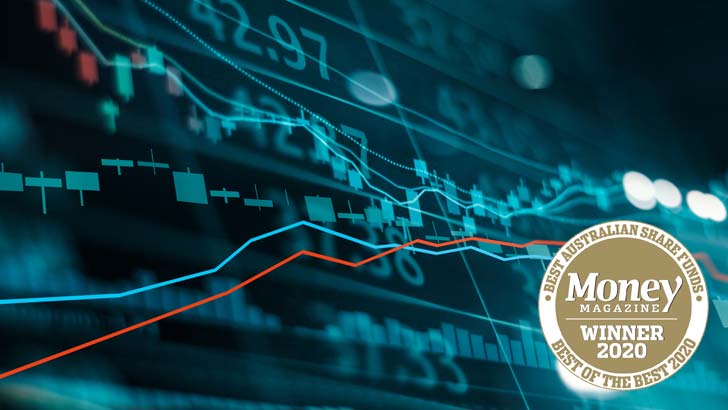Best Australian Share Funds: Best of the Best 2020
By Money Team
GOLD WINNER
FRANKLIN TEMPLETON
The manager's ability to identify long-term value has rewarded investors
The Franklin Templeton Australian Equity Fund will suit investors who are looking for a core Australian equity fund focused on the leading 100 Australian companies.
It aims to outperform the S&P/ASX 100 Accumulation Index over the medium to long term after fees and expenses (but before taxes), which it
has done consistently.
The manager's investment approach is based on an in-depth understanding of the top 100 companies in the Australian market, focused on sustainability of their business model, with ESG (environmental, social and corporate governance) and tax considerations embedded into analysis and investment decisions.
Portfolio construction is based on identifying long-term investment value.
The second placegetter, the Antares Australian Equities Fund, invests in a diversified portfolio of 30 to 50 Australian listed equities that the manager believes are undervalued in the expectation that they will move up to their fundamental value over the long term.
It aims to outperform the S&P/ASX 200 Total Return Index (after fees) over rolling five-year periods.
The Macquarie Australian Shares Fund aims to hold about 25 to 30 securities at any time.
Only those securities that the manager believes will generate the greatest returns are included in the portfolio.
Many funds miss the mark
You need to be highly selective when you invest in managed Australian share funds, as many of them fail to hit, let alone exceed, their benchmark.
In the 12 months ending June 2019, Australian large-cap equity funds recorded an average return of 6.3%, well below the gain of 11.6% by the S&P/ASX 200, according to the SPIVA Australian scorecard, compiled by S&P Dow Jones.
Of the funds in this category, 93.2% and 96.3% failed to outperform the benchmark, the S&P/ASX 200, on absolute and risk-adjusted bases, respectively, over the 12 months.
And this is not just a one-year phenomenon.
Over five, 10 and 15 years, 80.63%, 82.56% and 84.05% respectively have been outperformed by the S&P/ASX 200 based on absolute return, according to the scorecard.
Get stories like this in our newsletters.


